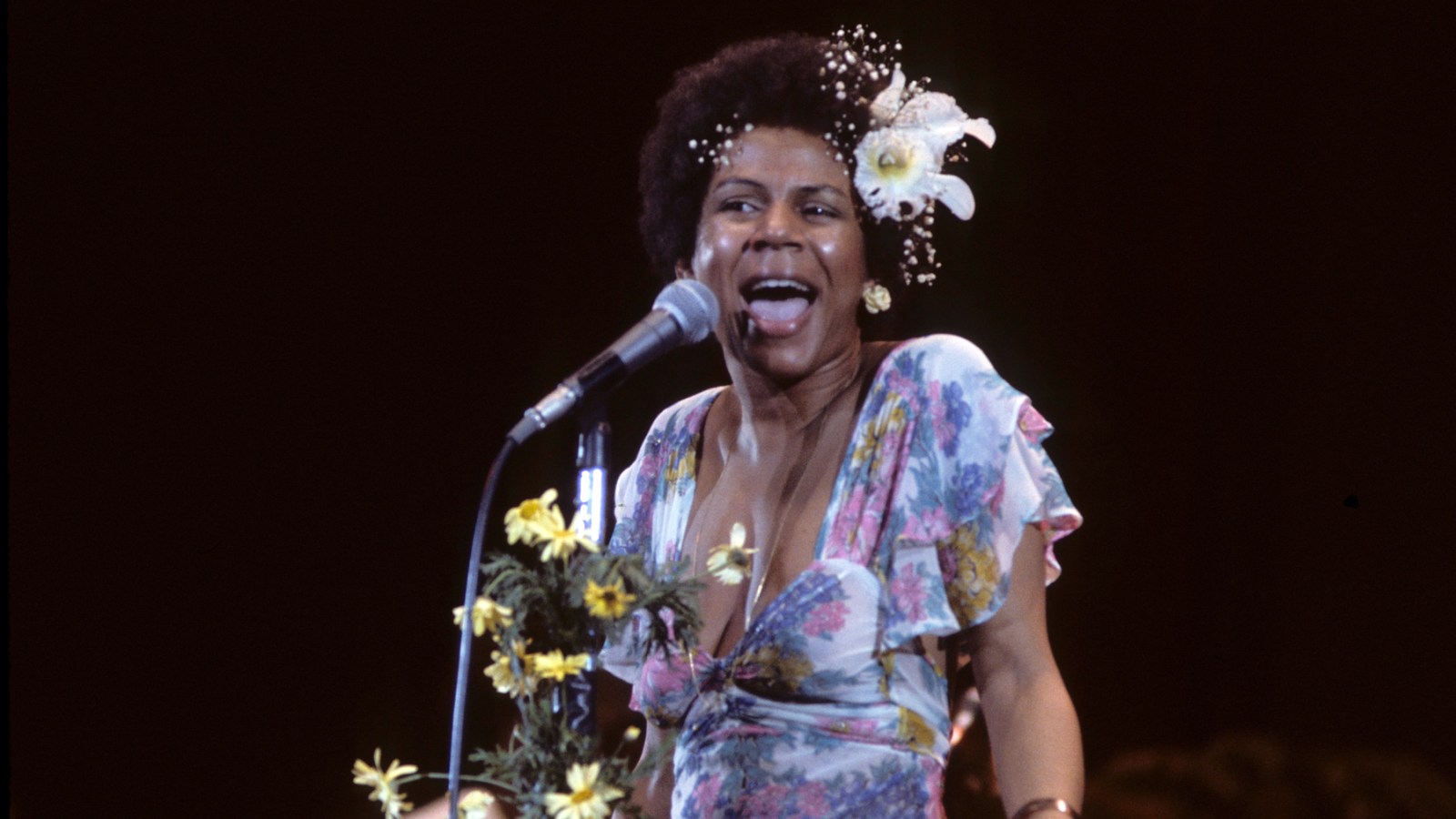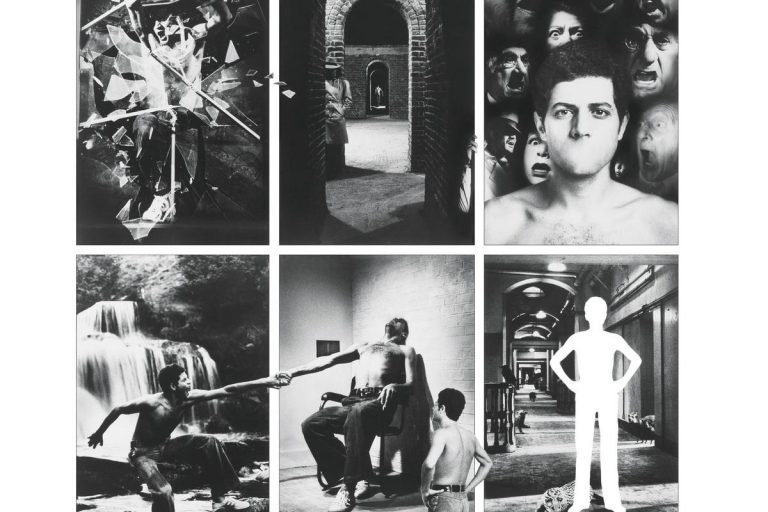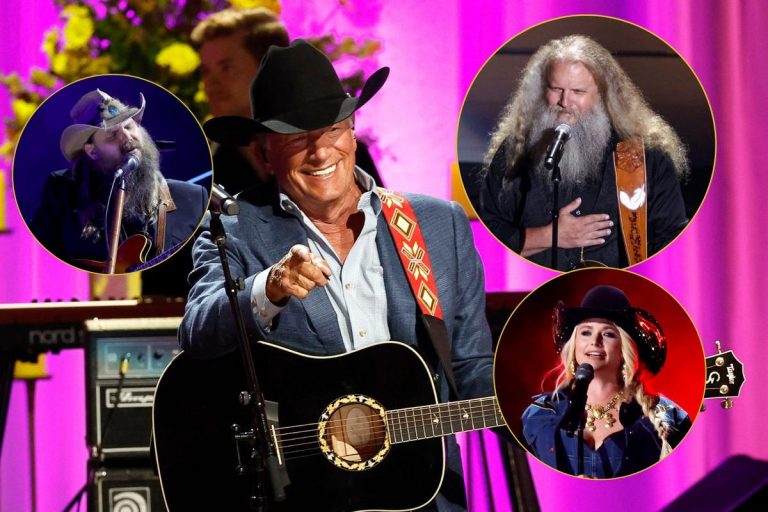This story was originally published in the Oct. 10, 1974, issue of Rolling Stone.
Along with many of the stars and hopefuls at Chicago’s 1971 Black Expo, Minnie Riperton waited patiently backstage to approach the blind musician rocking characteristically in his chair. His latest album, Where I’m Coming From, was moving up the charts.
“Everybody was trying to meet Stevie,” she recalled over lunch recently, leaning back to adjust a large, foppish white hat that rested lightly on a natural of moderate length. Occasionally the hat concealed her bright eyes, but never the beaming intensity of her Rodney Allen Rippy smile framed by deeply dimpled cheeks.
“It was his first step, he was starting to produce and I was really into his music — so I made it quick. I didn’t want to bore him or take up his time, so I said, ‘I just want to thank you for your beautiful music. You’ve made me and my family very happy.’
“As I was leaving he said, ‘Oh, thank you, sister. What’s your name?’ When I told him ‘Minnie,’ he freaked.
“‘You’re not Minnie Riperton, are you?’ He started jumping around. ‘Oh, my God! Is this a dream? I must be in heaven. You’re an angel. Your music is fantastic. I’ve gone through three of your Come to My Garden albums, where can I get another? Oh, this is so beautiful! Thank you for the work you’ve done!’”
Minnie’s work started when she was 15 — a three-year stint as part of the Gems, a backup vocal group on Chess Records that sang behind everyone from Johnny Nash and Fontella Bass to Billy Stewart and Etta James. “I was like Leonard Chess’s little pet,” she explained. “He and his brother Phil really dug me as a person. They offered me a job as a receptionist; so when it was time to do the singing I could just run upstairs and then come down and punch the typewriter again.”
Minnie also put the voluminous Chess catalog in order; filing, indexing, assigning master numbers and even helping the Rolling Stones find old Chuck Berry material when they breezed into town. “You’d be surprised what was in that vault,” she said, “and the people who recorded on that label.”
Minnie eventually left the desk job as her studio work increased to include a variety of commercials: Coke, Butterfingers, Clearasil and United Airlines among them. At Chess’s suggestion, she spent a year as “Andrea Davis,” but disgusted with the “phoniness and difficulty adjusting,” she soon abandoned the pseudonym.
Minnie made her mark in the late Sixties with the now defunct Rotary Connection; six albums’ and three years’ worth. But the company was lax in promotion, she said, and the band wound down to a frustrating halt. “In the end, the only way Rotary Connection succeeded,” Minnie said with a trace of bitterness, “was through the people that saw us and sought out our records.”
The band’s main thrust was Minnie’s special gift — a voice that ranges over five octaves, soaring skyward to linger on some spine-tingling note before floating feather-like to where words can again take shape. That power, as well as friends made during her eight-year stay with Chess, kept Minnie working even after she recorded a final solo album, Come to My Garden, and secured her contract with Chess. And the commercial accounts and backup jobs increased, allowing Minnie and her husband (now songwriting partner and rhythm guitarist in her band), Richard Rudolph, to survive.
They “retired” to Gainesville, Florida, for two years to “have another baby, ride horses, lie naked in the sunshine and live.” But the business wouldn’t leave her alone. A&R men sought her out and she talked deals with everyone from Clive Davis to David Geffen, eventually signing with Epic. She still had the problem, though, of being categorized.
Minnie got her start singing in church, but she cultivated her voice through opera lessons until, “due to lack of money and being the eighth child in the family,” she gave it up, joined the Gems and turned to popular music. “People are always thrusting me into categories,” she said. “Pop music, black music, this music, that music. I’ve never wanted to be anyone but who I am.” She prefers to be thought of as just a “good singer.”
With the reintroduction of Stevie Wonder into her life, the problem of getting a producer to listen to her sound was solved. After the Epic contract was signed, and while Minnie was at home (in Hollywood this time) “vacuuming with the dust thing on my head, singing to Innervisions,” her manager, Jack Kellman, called Wonder in Los Angeles.
“He answered and I said, ‘You don’t know me. My name’s Kellman and I manage Minnie Riperton.’ He shouted, ‘Minnie Riperton? Where’s Minnie Riperton?’ I said, ‘Wait a minute,’ walked into the living room and told her to pick up the phone.” They arranged to meet in the studio later that evening.
“I went and he was such a gentleman, introducing me around, telling people how pretty I was. He even had me meet Ewart Abner, president of Motown Records, saying ‘Abner, this is a lady I want to produce. Really. She’s fantastic.’”
Eventually, Wonder quietly lent a guiding hand to the making of Perfect Angel, her first album for Epic, playing on some of the tracks and writing two songs, “Perfect Angel” and “Take a Little Trip.”
“I can’t say he produced it,” Minnie explained. “He just acted as the overseer.” The fact that many other artists would like Wonder’s services also made him reluctant to take credit on the album, although an “El Toro Negro” is listed in various places on the back cover. It is, in effect, another case of the George Harrysong blues.
And Minnie occasionally has run into the cold shoulder from a performer or two Wonder had to turn down. She doesn’t like it but offers her understanding. “It’s cool, because I know where I’m at. It was just something that Stevie really wanted to do.”
Right now, Minnie and Richard are taking some time off after a summer promo tour (although she still does backup work — Eddie Kendricks, Quincy Jones, Syreeta) and reflecting back upon the crowds that often treated Minnie more like the headliner than the opening act.
One Chicago writer in particular sticks in their minds. Approaching them on opening night he insisted, “My old lady says it’s impossible for anyone to have a five-octave range!” Minnie just shrugged and said with a laugh, “What can I tell ya? I’m a freak.”




Leave a Comment